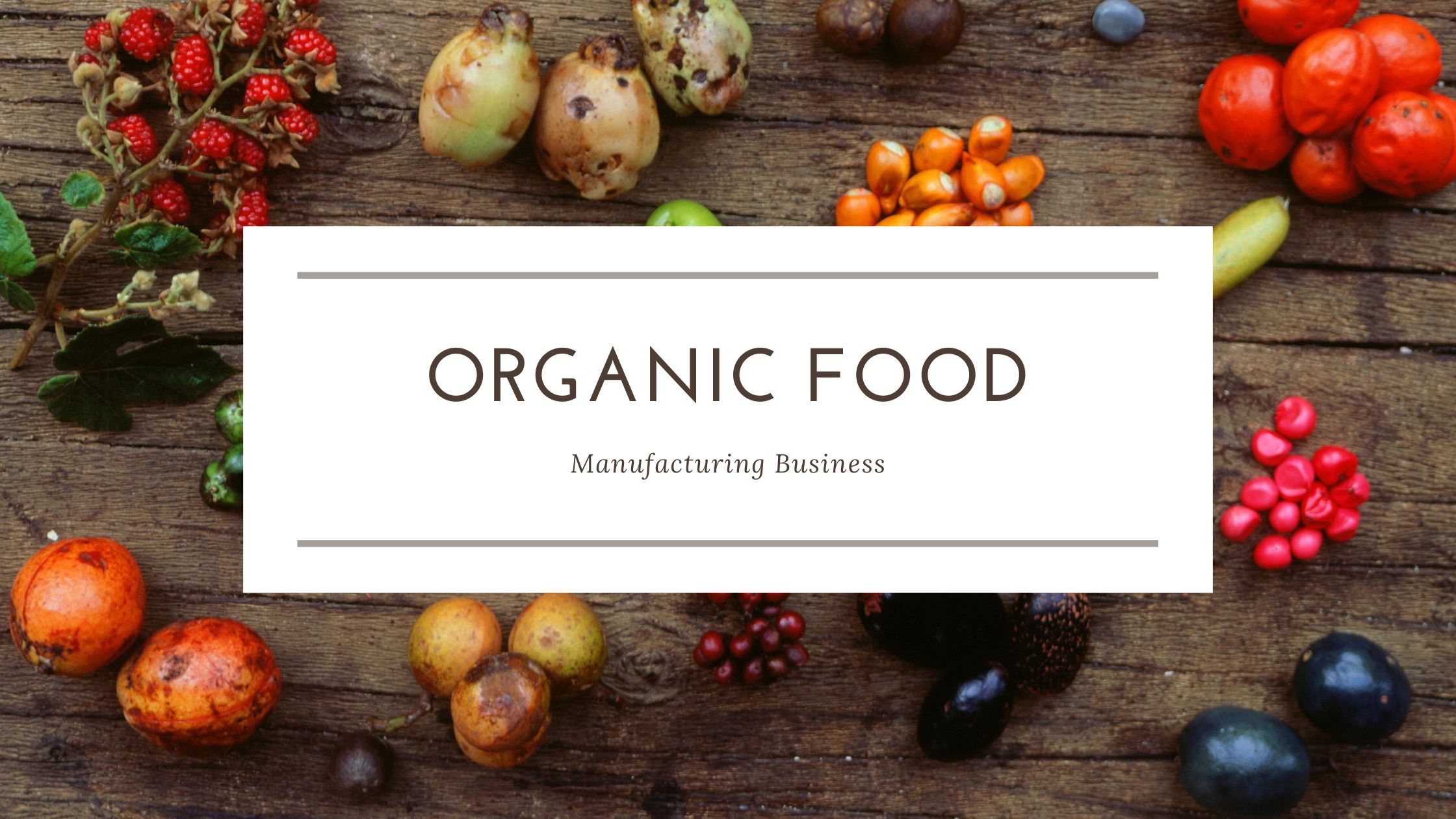
Organic Food Manufacturing Business
Introduction
Welcome to our Organic Food Manufacturing Business. We prioritize health and sustainability. We use top-quality organic ingredients. Our goal is to offer nutritious and flavorful options. We source from trusted farmers. Every step is guided by integrity and excellence. As well as, We care about our impact on the environment. Join us in reimagining the future of food. Together, let’s make a difference. Welcome to our world of organic goodness.
Market Size
Market Research. The Global Organic Foods Market is valued at USD 181.5 Billion in 2022 and is projected to reach a value of USD 446.2 Billion by 2030 at a CAGR (Compound Annual Growth Rate) of 11.9% between 2023 and 2030.
Scope of business
While, The Indian organic food industry currently sized at 6000 crores is expected to grow at a CAGR of 25%, reaching a value of US$ 2,091 Million by 2024. But, With this in mind, a lot of newer organic brands that follow traditional processing techniques are entering the market every day
Raw material required for Organic Food Manufacturing Business
However, Food manufacturers use raw materials, such as whole and milled grains, fruits, vegetables, nuts, meats, oils, and sugars, to create ready to eat or prepare food products for distribution to wholesalers, distributors, and retailers.
Before the organic manufacturing industry start-up what you need to know?
Here are the three things you need to know if you want to start an organic farming business in India.
- Get certified
- Find funding
- Total (calculated as per the higher range figures) = Rs.
- Site selection.
- Soil Management: Recharging the soil after the cultivation of crops to restore nutrients is soil management.
- Before starting business we need training and mentorship.
Market Demand for Organic Food Manufacturing Business
However, the global organic food and beverages market was valued at USD 210.6 billion in 2022, growing at a CAGR of 12.3% from 2023 to 2032. And, the market is expected to reach USD 671.8 billion by 2032.
Future Potential for Organic Food Manufacturing Business
However, there is still much scope to grow as the global market is over $ 133 Bn. And, the US Department of Agriculture estimates that India’s organic products market (encompassing food and beverages, health and wellness, beauty and personal care, and textiles) will grow to $10.1 Bn by 2026.
Machinery and Equipment
These are the most common tools used by organic.
- Cultivators
- Camera Guidance Systems
- Tine Weeders
- Rotary Hoes
- Flame Weeders
- Weed Zappers
- Air Seeders
- Chisel Plow
- Moldboard Plow
- Planters
Can we get funds from the bank for Organic Food Manufacturing Business
Yes, you can get funds from banks for your organic food manufacturing business. They Not only offer various options like term loans and lines of credit. But also, You can explore SBA loans and equipment financing. As well as Asset-based loans and commercial real estate loans are other possibilities. And, Prepare a solid business plan and collateral. Work with a banker familiar with the organic food industry to secure funding.
Case study for Organic Food Manufacturing Business
While, Green Harvest Organics shows how organic food businesses succeed today.0 Green Harvest focus on sustainability, creativity, and helping the community. And ,this benefits both the environment and society while achieving business success. However, these businesses lead to a healthier, more sustainable future as demand for organic products rises.
Are organic food products good for health or not?
Whether organic food is “Good for Health” depends on what you like, what you eat, and how you live. While, Organic food might have fewer chemicals and support farming sustainability. But, it’s not a sure way to fix health problems. while, For good health, it’s best to eat a mix of whole grains, lean meats (organic or not), fruits, and veggies.
If you are thinking to start organic food manufacturing business, what are the chances of success ?
While starting an organic food manufacturing business offers opportunities for success, it’s crucial to approach it with careful planning, market research, and a commitment to delivering high-quality products.
Marketing Strategies
Form an advertising strategy for your organic and natural products – show the vital information about the natural and organics your store has, and where they can be found. Also, it’s an opportunity to explain why the store is selling these products, including benefits to highlight its edge against non-organic foods.
Hire and Train Your Team
While, Hiring and training your team is key. Define roles you need. Recruit aligned candidates. Provide comprehensive training. Ensure understanding of organic practices. And, Encourage continuous learning. As well as, Offer advancement opportunities. Invest in your team for success.
Market Your Brand
Moreover, Promote your brand well. As well as, Emphasize organic aspects. But, Use various channels. Share useful content. Partner with influencers. Design appealing packaging. Get customer reviews. As well as, Show products at events. Target interested consumers. Measure and adjust strategies.
Write a organic manufacturing Business Plan
Proposed Site of Organic Fertilizer Plant
When Select production sites to cut transport costs and pollution. Choose locations near water and power supplies. And, ensure easy transportation access for efficiency. As well as Reduce logistical challenges and costs.
conclusion
In conclusion, starting an organic food manufacturing business is exciting. Additionally, we’re committed to making high-quality, sustainable products. Furthermore, our focus on organic ingredients sets us apart. As we move forward, we’ll prioritize innovation and efficiency. Together, we aim to promote health and sustainability. Lastly, thank you for joining us.